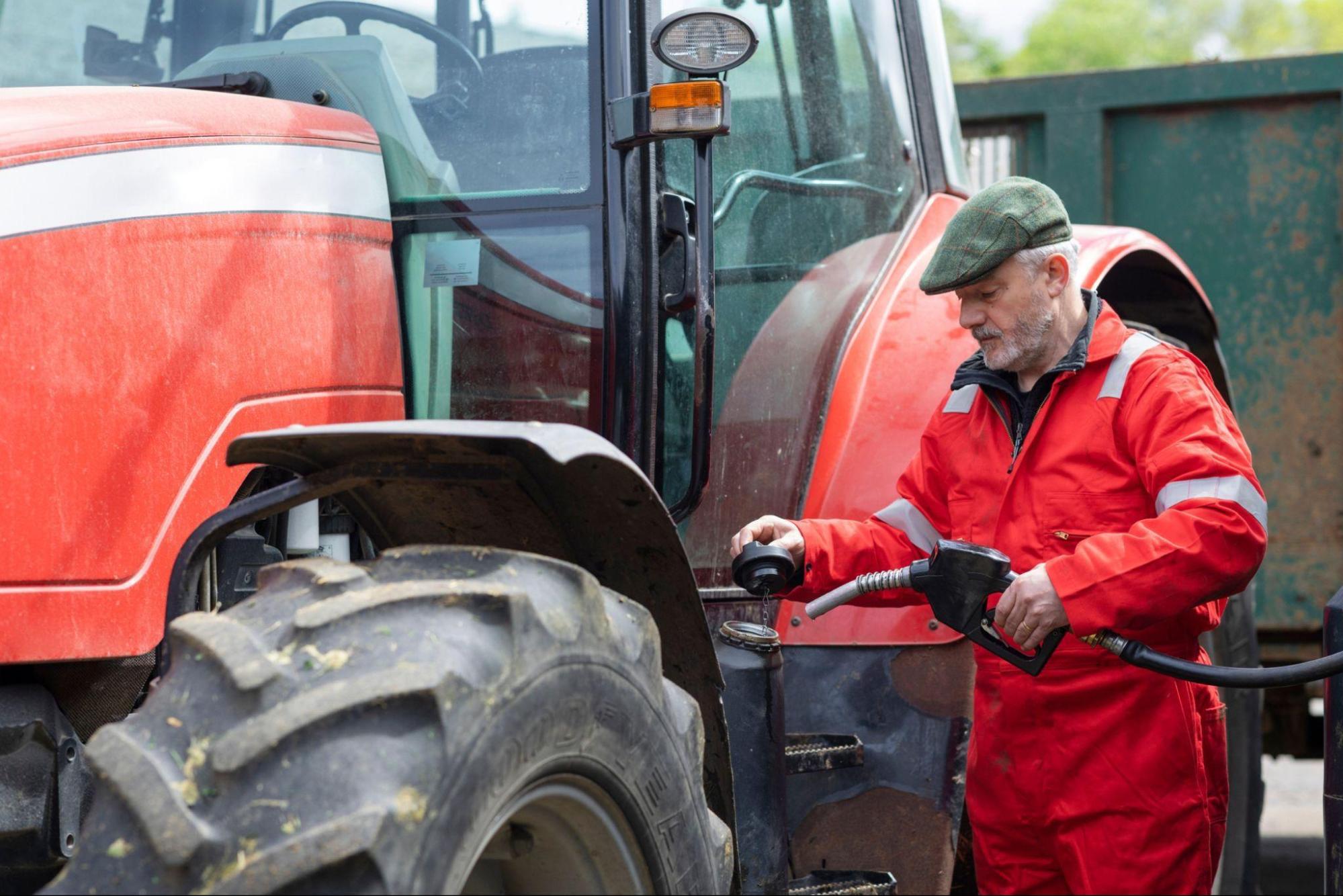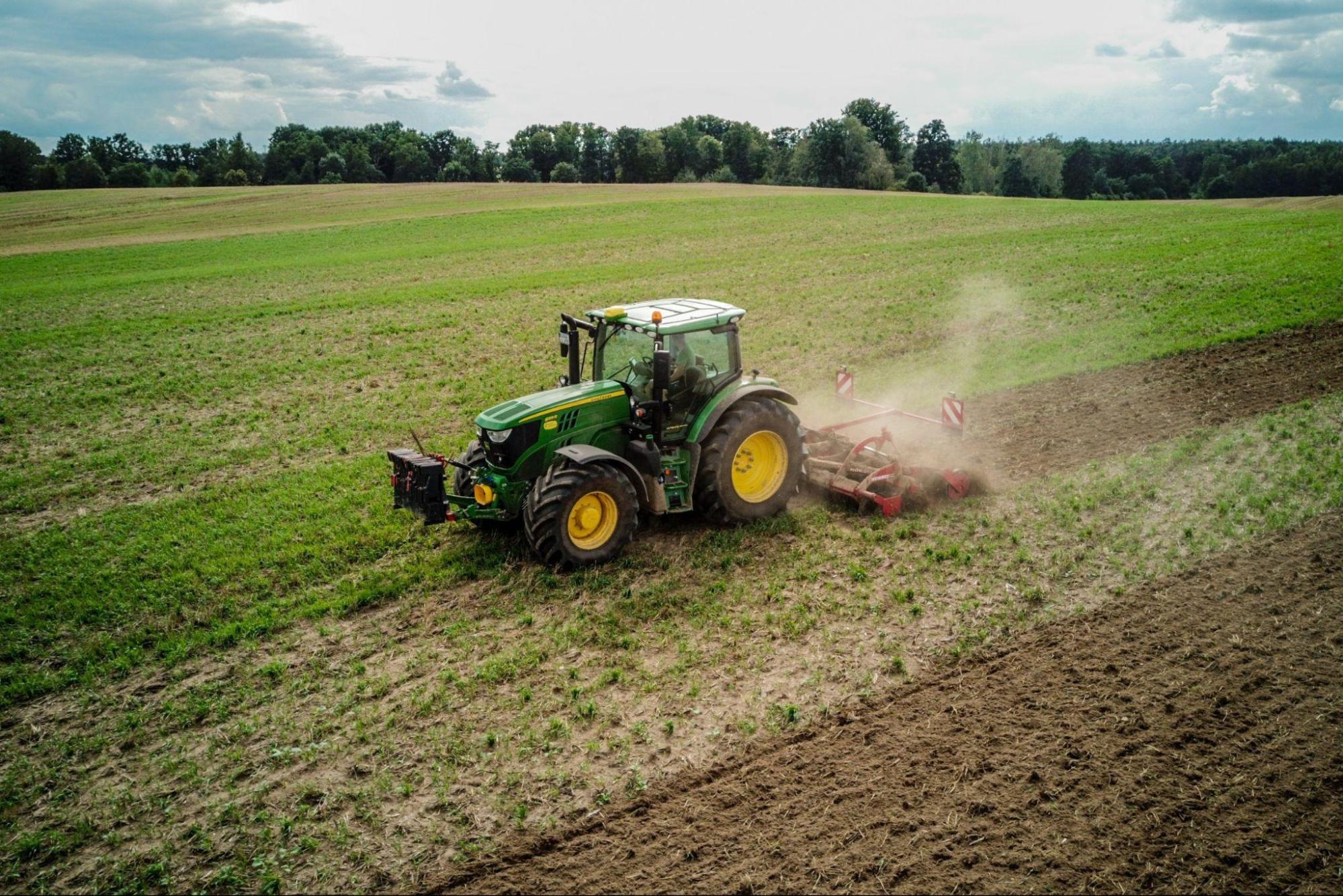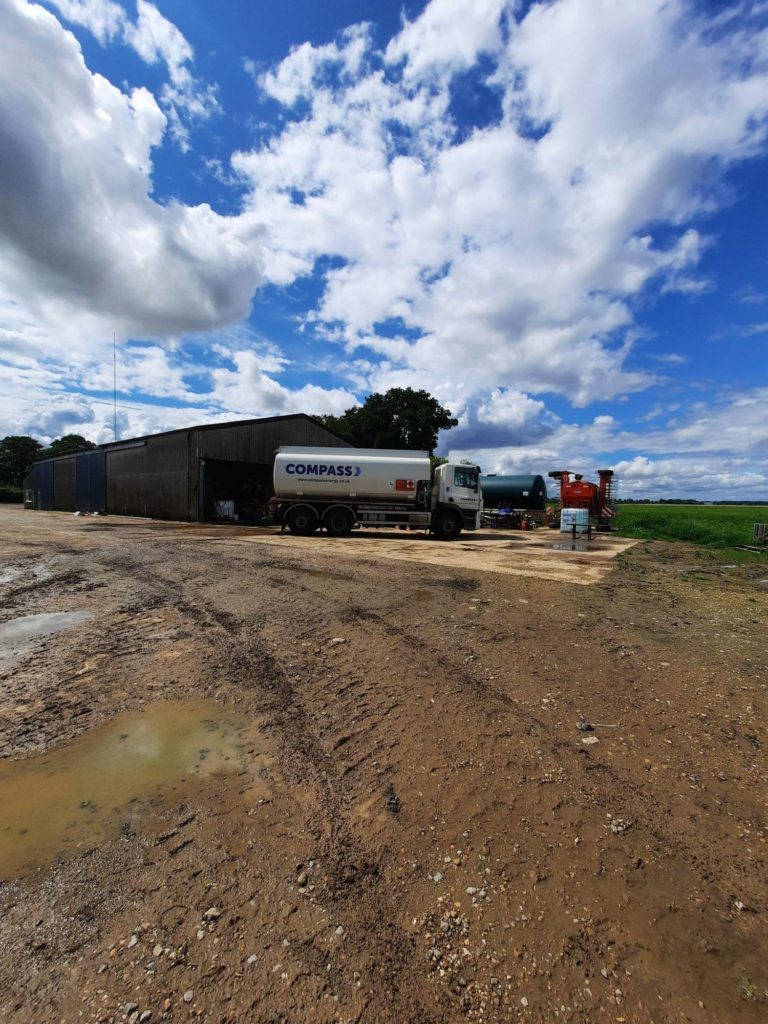Seasonal Fuel Needs: Preparing Your Farm for Spring Planting and Harvest Season
There’s no such thing as downtime on a farm, especially not in spring. For farmers across the UK, it is a critical window to lay the groundwork for a successful harvest.
Fuel is the lifeblood of modern farm maintenance spring. Whether it’s red diesel for tractors or heating oil for greenhouses, having the right products in place and on time can make the difference between swift operations and costly delays.
Therefore, this guide explores preparing farm for planting to get ahead of your fuel needs before the season kicks into high gear.
From storage readiness to product selection and delivery schedules, we’ll help ensure your farm is well-prepared for a productive spring and beyond.
Understanding Your Seasonal Fuel Requirements

Field preparation, sowing, maintaining livestock environments, and fuelling heavy machinery —everything hinges on timing, efficiency, and reliable support.
Let’s break down the key requirements across the critical stages of the farming calendar.
-
Planting Season
Spring planting is a labour-intensive time that relies heavily on diesel-powered equipment.
Tractors, cultivators, seed drills, and sprayers are in near-constant use, often operating for long hours in unpredictable weather conditions.
Red diesel (also known as gas oil) remains the primary fuel source for most agricultural machinery in the UK during this period.
The efficiency of your planting schedule will depend on uninterrupted access to high-quality diesel and a reliable storage setup.
In addition to securing adequate fuel reserves, this is also the ideal time to inspect and service fuel tanks, filters, and lines.
Poor fuel quality or residue from winter storage can result in injector problems or equipment breakdowns.
Pre-season preparation should include a full tank top-up to reduce the risk of condensation, along with the use of additives where recommended to improve combustion and prevent microbial growth.
-
Heating Needs
While outdoor work dominates in spring, many farms still depend on heating systems, particularly those involved in horticulture or livestock care.
Greenhouses, polytunnels, calving sheds, and poultry houses all require regulated temperatures to protect young plants and animals from unpredictable cold snaps.
Therefore, heating oil and related fuels remain a vital part of your seasonal fuel strategy.
If you operate biomass or HVO-compatible systems, ensuring you have a secure and adequately sized storage solution is just as crucial.
-
Harvest Season
Although it arrives later in the year, planning for harvest begins in spring. As crops grow, so do your fuel demands, often doubling during peak harvesting weeks.
Alongside red diesel, many farms require AdBlue to maintain emissions compliance for modern diesel engines.
Lubricants, grease, and hydraulic oils are equally essential to ensure machinery performs under constant load.
Downtime during spring planting preparation UK due to fuel shortages or mechanical faults can result in lost yields and profits.
Forward-thinking farms secure fuel supply contracts early in the year, locking in pricing and scheduling deliveries well before the busy period begins.
Seasonal Supply Planning
Effective seasonal supply planning allows farmers to stay ahead of the curve, avoiding delays, downtime, and unexpected costs.
Below are 3 key aspects of fuel planning that contribute to a well-prepared, efficient farm season and farm maintenance spring.
-
Forecast Demand
Accurate forecasting is the foundation of a reliable fuel strategy for farm maintenance spring.
Begin by analysing fuel usage from previous planting and harvest seasons to identify patterns and peak consumption periods.
Consider variables such as acreage under cultivation, crop type, machinery hours, and any expansion in operations for the upcoming year.
An early-season assessment of your machinery fleet can also help determine fuel requirements. If you’ve added new equipment or increased capacity, your consumption will rise accordingly.
-
Safety Buffer
Maintaining a surplus of red diesel, heating oil, or HVO on-site can help you manage sudden spikes in usage or delivery delays, particularly during planting or peak harvest periods.
Ensure your tanks are large enough and in good condition to store the additional volumes safely.
Regular tank inspections and maintenance, such as checking for leaks, rust, or water ingress, will ensure your backup supply remains secure and uncontaminated.
Moreover, adding smart monitoring systems can also provide real-time insight into fuel levels, helping you manage reserves proactively.
-
Supplier Partnership
Working with a reliable, agriculture-focused fuel supplier gives farmers a major advantage when it comes to seasonal supply planning.
Strong supplier relationships mean better service continuity, flexible delivery options, and access to essential fuel products, including red diesel, heating oil, HVO, AdBlue, and lubricants.
Establishing a seasonal delivery schedule with your supplier can significantly reduce the risk of running short at critical times.
Machinery Prep & Fuel Quality

As the farm maintenance spring gets underway, ensuring your machinery is fully operational and fuel systems are in peak condition is essential.
Equipment breakdowns, fuel contamination, and emissions compliance issues can all cause costly delays, especially when planting schedules are tight.
-
Spring Servicing
Before you put your machinery to work, a comprehensive spring service is non-negotiable.
Tractors, cultivators, drills, and sprayers all undergo intense use during the planting period, and pre-season maintenance plays a crucial role in preventing mid-season failures.
This includes checking engine oil levels, replacing filters, inspecting tyres, testing hydraulic systems, and ensuring all moving parts are well-lubricated.
Fuel filters, in particular, can become clogged with debris, especially if fuel has been sitting unused over winter.
Replacing them before the season starts helps maintain fuel flow and protects injectors from damage.
-
Fuel Hygiene
Over time, fuel stored in tanks, especially red diesel, can degrade due to water contamination, microbial growth (diesel bug), and sediment buildup.
To ensure high fuel quality, it’s essential to regularly inspect storage tanks for signs of water ingress, sludge, or rust.
If issues are found, the tank should be cleaned and flushed before refilling. Using fuel additives can further enhance fuel stability, prevent bacterial growth, and support cleaner engine operation.
-
AdBlue Usage
Modern diesel-powered farm machinery often relies on Selective Catalytic Reduction (SCR) technology to meet emissions standards, which requires the use of AdBlue.
This urea-based fluid is injected into the exhaust system to lessen harmful nitrogen oxide (NOx) emissions, allowing newer engines to operate more efficiently.
Farmers should ensure they have an adequate and secure supply of AdBlue ahead of the farm maintenance spring season.
Safe Storage And Environmental Considerations
Look for signs of wear, such as rust, corrosion, cracks, or signs of water ingress, which can compromise fuel quality and lead to environmental hazards.
Tanks should be installed on stable ground and fully compliant with UK regulations. This includes proper bunding of secondary containment systems that can hold at least 110% of the tank’s capacity.
Additionally, handling and storing AdBlue requires its own environmental considerations. It must be kept in tightly sealed, temperature-controlled containers to prevent contamination and crystallisation.
Lastly, any fuel spillage, no matter how small, should be treated seriously.
Farms must keep spill kits readily available near fuel storage areas and ensure that all staff are trained in basic containment and cleanup procedures.
Conclusion
By understanding your seasonal fuel needs and taking proactive measures to manage supply, quality, and cost, you can reduce downtime, protect your equipment, and stay one step ahead.
At Compass Energy, we understand the demands of farming. That’s why we offer trust-worthy and timely delivery of heating fuel tailored to the agricultural calendar.
Get in touch with Compass Energy today to discuss your seasonal fuel needs and set your farm up for a productive, stress-free season ahead.








